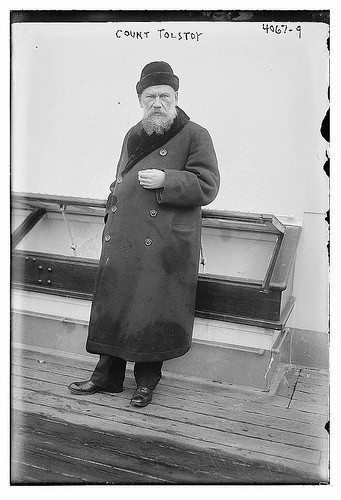Part 3 of 4
In April, I attended a gathering to read aloud and reflect on a Leo Tolstoy short story. The powerful tale “How Much Land Does a Man Need?” is arguably one of the greatest stories in the world of literature.
Some in that room were what our culture would call “successful” and “powerful” and “storied.” Having spent lifetimes making money, spending money, saving money and leveraging money, many of us in that room could easily feel we had achieved the American Dream. Or were still chasing hard after it! Land was to the ex-serfs as money is to us Americans. This haunting Tolstoy parable woke us up.
Tolstoy tells the story of a Russian peasant, Pahom, whose life trumpets a story that echoes through the empty hallways of our now-dying American Dream. He, too, was living in a time of chaos and uncertainty as the Russian serfs were being liberated from the aristocracy but now no longer had the generations-long safety net provided by these landowners. Many serfs were forced off the land and out of the villages of their ancestors, obliged to move on to find new land to support their families. Some, like Pahom, moved on too far.
Parables are especially powerful because they allow us a quick glimpse in the mirror to see ourselves as we really are. To capture what was, for me, the essence of Pahom’s story, I wrote the following haiku:
Leaving kin behind,
Sweating, cursing, falling dead:
Greed-drenched six-foot hole.
How far do you need to go? What would be too far? Would you agree with this Gallup article — “Happiness is Love — and $75,000”? So what’s your Number?
Toolkit:
What stage(s) of money ‘ownership’ are you in?
Consider the following statements about money:
- Money owns me. I worry a lot about having enough now and in the future.
- Money serves me. I feel confident that I have enough for now and know how to manage it.
- Money serves my “Big Why.” I feel confident that I have enough for now, the future, and I regularly invest money in causes that serve others.
Ponder this: Which of the 3 statements do you relate to most?




